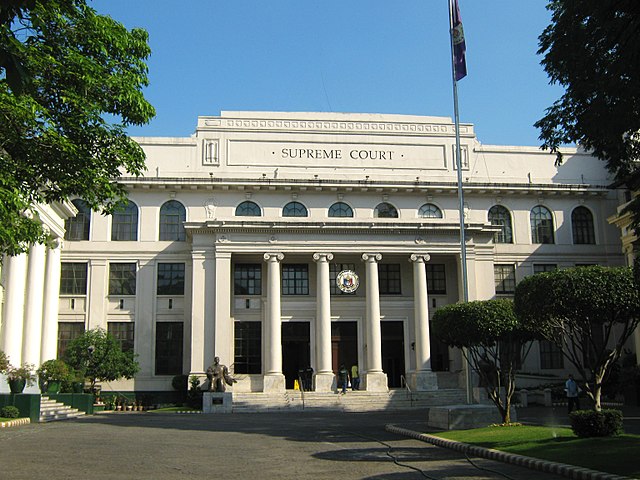News
SC eyes collab with Project NOAH for disaster-resilient courts
By Benjamin Pulta, Philippine News Agency

The potential collaboration between the SC, and the University of the Philippines Resilience Institute and Project Nationwide Operational Assessment of Hazards (NOAH), was put forward in a meeting on August 7 at the En Banc Session Hall where the Committee on Sustainability and Environmental Concerns discussed “Climate Change Science and Climate Projections in the Philippines,” according to a Friday news release. (File Photo By Mike Gonzalez (TheCoffee) – Own work, CC BY-SA 3.0)
MANILA – The Supreme Court is considering the use of probabilistic risk assessment maps for future infrastructure developments to guarantee the safety and resilience of courts against natural disasters.
The potential collaboration between the SC, and the University of the Philippines Resilience Institute and Project Nationwide Operational Assessment of Hazards (NOAH), was put forward in a meeting on August 7 at the En Banc Session Hall where the Committee on Sustainability and Environmental Concerns discussed “Climate Change Science and Climate Projections in the Philippines,” according to a Friday news release.
“This (collaboration) will help ensure that policies regarding infrastructure projects are based on comprehensive risk assessments, ultimately leading to more disaster-resilient and sustainable Halls of Justice,” the Court said.
During the meeting, Dr. Mahar Lagmay presented Project NOAH’s website https://noah.up.edu.ph/, which uses predictive risk assessment to map hazards and natural disasters, such as flooding, landslides, and earthquakes.
While government maps use historical risk assessment based on past occurrences, Project NOAH uses probability assessment drawn from climate change data, among others.
Also present at the meeting were judges and representatives of various government agencies, the Integrated Bar of the Philippines, and the academe.
They were joined by representatives from the Justice Sector Reform Program – Governance in Justice, the International Commission of Jurists, and the United States Embassy Office of International Narcotics and Law Enforcement Affairs.

